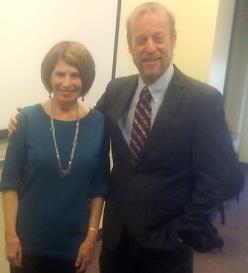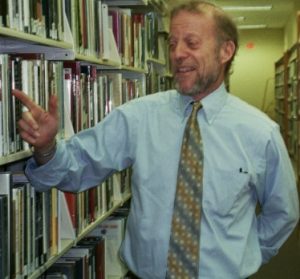Rabbi Mark Biller, spiritual leader of Congregation Beth Ahm in Verona, offered a provocative three-part Our Jewish World series, titled “Here’s What They Ask When You Get to Heaven.” The series, which was free and open to the public, was held at 1 p.m. on Tuesdays, March 7, 14, and 21 at the Morris County Library, 30 E. Hanover Ave., in Whippany.
Our Jewish World is coordinated by Melanie Levitan and Ellen Nesson.
Noted Rabbi Biller, “This title implies an afterlife, which shocks many post-mid-20th-century Jews. It imagines a body fulfilling actions while a soul is measuring and being measured by those actions. More important is that when talmudic rabbis discuss ‘what you are asked in heaven,’ they are really asking what factors are needed to guide life in the here and now, making this course crucial for believers, non-believers, agnostics, atheists—anyone who is serious about charting a life that is meaningful and of value. Take stock of your life through the lens of the fourth-century teacher Rava, and see what has changed in 17 centuries—or not—in how we define ‘a life well lived’.”

Our Jewish World co-chair Melanie Levitan, left, welcomes Rabbi Mark Biller, who presented a thought-provoking three-part series, titled “What They Ask You When You Get to Heaven,” at the Morris County Library.
Rabbi Biller said, “This is a great class for anyone who thinks about what makes a life of meaning. Rava, in the fourth century, boldly states, ‘Here are the questions they ask you when you get to heaven.’ Is this on-the-ground reportage, or is he guiding us with the questions we need to be ask ourselves here and now?”
“Here’s What They Ask When You Get to Heaven” offed a lively, inclusive discussion and insights into what matters most.
A master storyteller, Rabbi Biller thoroughly enjoys teaching these classes and brings a fresh, bright outlook to Judaism’s traditional texts.
The rabbi specializes in counseling Jews of all ritual levels looking to find meaning in both modern life and rich Jewish traditions. The spiritual leader of synagogues in his native Canada, as well as in Alabama, New York and New Jersey, the rabbi received rabbinic ordination from the Jewish Theological Seminary. He also studied BiblioDrama with Peter Pitzele at the Union Theological Seminary, and completed a two-year Spiritual Direction course at Elat Chayyim, designed to help participants teach others how to identify and follow their own spiritual paths.

